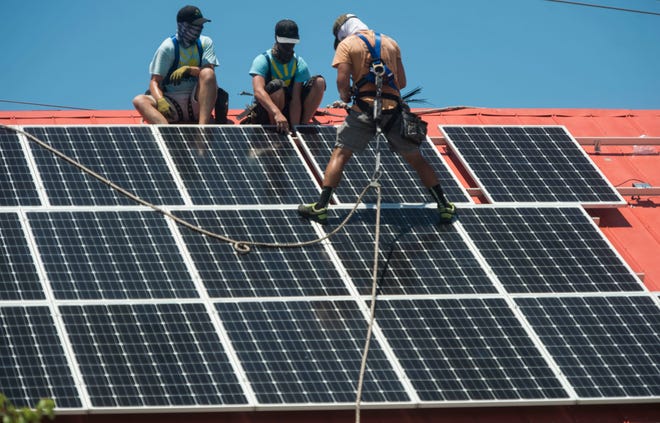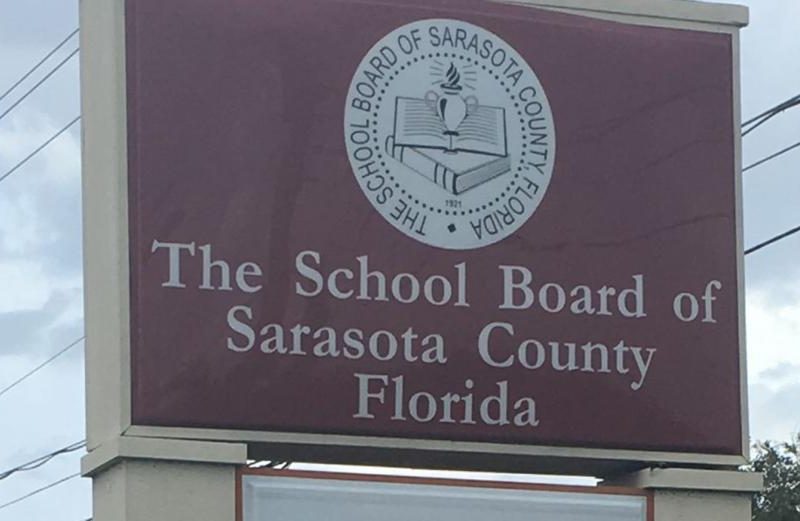Future not so bright for solar in Florida schools legislation
Sarasota Herald-Tribune | Ryan McKinnon | March 16,2021
State lawmakers are considering legislation this spring that would make it much easier for school districts to utilize solar energy, although advocates for alternative energy are likely to be disappointed by the outcome.
Two bills, filed by Sen. Lori Berman, D-Boynton Beach, and Rep. Omari Hardy, D-Lake Worth Beach, would allow school districts to negotiate “Power Purchase Agreements” with renewable energy providers. Under such an agreement, the energy provider covers the initial costs of installation and agrees to sell the customer the energy.
Berman and Hardy also have filed separate bills that would remove the cost of solar energy systems from the “cost per student station,” a controversial formula that caps how much school districts can spend when building a new school.
Advocates for the Power Purchase Agreement legislation say that 79% of schools that use solar energy do so through such agreements because it eliminates the startup costs.
However, the Democratic-led initiative has not advanced. It is going up against the powerful energy lobby, and lawmakers are leery of changing how utilities are regulated, especially in light of the Texas ice storm that crippled the power grid there.
While the bill is popular among solar proponents, Florida’s relatively low utility rates means there is not a massive appetite for alternatives, Ron LaFace, the lobbyist who represents the Sarasota County School Board, said in an email to school officials.
“Florida’s utility regulations are different than the other states where this is allowed (Texas, for example), and Florida has pretty strict rate review based on cost of power,” LaFace said in an email to Sarasota County School Board Chairwoman Shirley Brown. “I haven’t been hearing huge ground swell that power rates are unreasonable by large power consumers.”
LaFace does not expect the Power Purchase legislation to move forward, and he advised the School Board to simply monitor the issue rather than come out in strong support.
The Students for Sustainability Club at Riverview High School has been advocating for the proposal, trying to get Sarasota school officials to voice their support.
Kysmet Fiallo, 17, the vice president of the club, said the students had reached out to several principals and the five School Board members to lobby for the idea.
“It would save a lot of money for the schools so they could put that money toward other things,” Fiallo said. “In Virginia, they used the money they got to build playgrounds, and it educates kids on renewable energy. Also helping the earth is a big reason as well.”
Brown said students had alerted her to the legislation, and she agreed with them that lawmakers need to come up with solar incentives that public entities can take advantage of.
“One of the problems with solar power is the state will give tax credits for it, but it’s like, um, that doesn’t really help (a public school system),” Brown said.
LaFace said the legislation that would remove the cost of solar installation from the cost per student station limit that school boards must abide by when building new schools stands a better chance, although it, too, has not gained much traction in Tallahassee.
The cap on how much districts can spend when building new schools has grown more controversial as the state has dramatically decreased the amount of money it gives districts to spend on new construction. Impact fees and local sales and property taxes now make up for what the state used to fund, so public school advocates in particular object to the state regulating how school boards spend local dollars.






